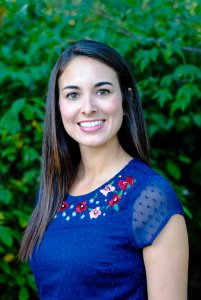I was recently invited to observe a weekly Parkinson’s disease (PD) meetup led by a local speech-language pathologist (SLP). At the end of the meeting the SLP asked the attendees if there was anything they wanted me, the guest, to know about Parkinson’s. One member of the group offered up a phrase commonly spoken in the PD community: “If you meet one person with Parkinson’s disease, you have only met one person with Parkinson’s disease.” As I scanned the room, that much was clear. Each person was different from the next, not one presenting in the same manner as their neighbor.
Learning more about PD this month leads us to break down the one-size-fits-all viewpoint. There is a common misconception that PD only plagues “old people” and is often described as an “old person’s disease”. There are approximately 1 million people living with PD in the United States and a reported 10 million worldwide. Parkinson’s Foundation reports that 2%-10% of those diagnosed with Parkinson’s are between the ages of 21-50 years, which is defined as Young-onset Parkinson’s disease (YOPD).
Age is not the only distinction between typically occurring PD and YOPD. It is documented that people with YOPD are more likely to experience dystonia (cramping and abnormal postures); experience more side effects from the traditional dopamine-based medications used to combat PD symptoms; and generally have a slower progression of the disease.
In addition to experiencing unique symptoms, individuals diagnosed with YOPD are in an entirely different season of life. While some may be navigating the world of dating, others may be married with children; some may be learning the ropes at their first job while others are mid-career professionals with considerable work experience. Nevertheless, many will be faced with making modifications to their long-term goals. Regardless of one’s age, a PD diagnosis has significant financial, social, and medical implications. However, there are distinct hurdles associated with a YOPD diagnosis.
Here are several people and projects that are relevant and can be used to fuel the conversation of making change and supporting all corners of the PD community. The individuals listed are just a handful of resources to learn more about developments within the YOPD population.
1. PD365 is a project completed by Emma Lawton and David Sangster who both live in England and have YOPD. From April 2017-April 2018 they dedicated their YouTube channels to spotlight a full year in the life of someone with PD. David and Emma each committed to recording a 5-minute or less vlog for 365 days and you can find their channels here: EMMA + DAVID.
2. To take PD365 one step further, Emma Lawton is preparing to launch the initiative “three six fives” which will be a peer-led website where others can share video blogs about their experiences with PD in hopes of finding support among others with long-term illness. The project is currently in the funding stage so if you are interested, you can give to this cause at the provided website.
3. The Emma Watch is technology created by Haiyan Zhang who is the Innovation Director at Microsoft Research, Cambridge. Zhang created a watch intended to steady a tremulous hand, which in Emma’s case was a significant improvement considering her own career as Creative Director with a focus on design.
4. Radio Parkies is an online radio show with DJs from all over the world who have PD. Each DJ showcases their favorite tunes and informs listeners about Parkinson’s disease. It is an initiative to spread awareness and to collaborate on an international level with the PD community. Give it a listen, it comes in many languages!
5. The Shoe Maven, Tonya Walker, is a fashion and shoe blogger who was diagnosed with YOPD. As she navigates the changes of her disease (including a temporary interlude from her high heels!), she continues to find ways to fundraise and attend events in support of PD. Check out her fashion blog here.
6. While managing a variety of other medical hurdles at a young age, Allison Smith (aka the Perky Parkie) was diagnosed with YOPD. She is a public speaker and blogger and will keep you laughing as you read her commentary and reflection on living with PD. Allison occupies the space of “keeping it real” balanced with sensitivity and humor.
I want to note that there are also many people in my local community (as well as communities around the world) who make a tremendous impact but do so by working behind the scenes. Building awareness and living your best life with a PD diagnosis can take many forms, and each component is equally appreciated and needed.
Although YOPD is only a percentage of the larger PD community, their motivation and initiative to make changes for the future is unmistakable. To read up on YOPD and some of the implications of research and treatment check out these sites:
- Parkinson’s Foundation has a page with a wide variety of details and statistics on YOPD.
- American Parkinson’s Disease Association has an excellent page with a lecture on YOPD.
- Michael J. Fox Foundation provides a resource with additional focuses on family planning, relationships, financial health, and parenting with YOPD.







COMMENTS ARE OFF THIS POST